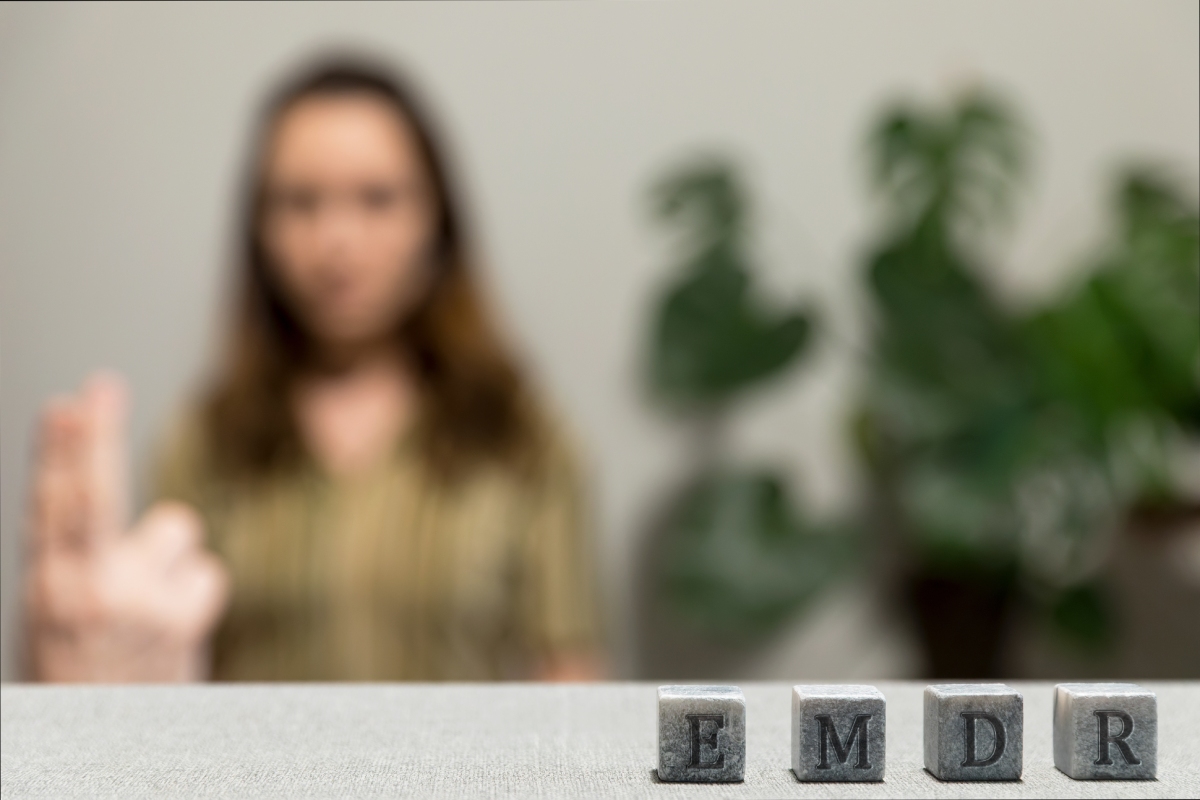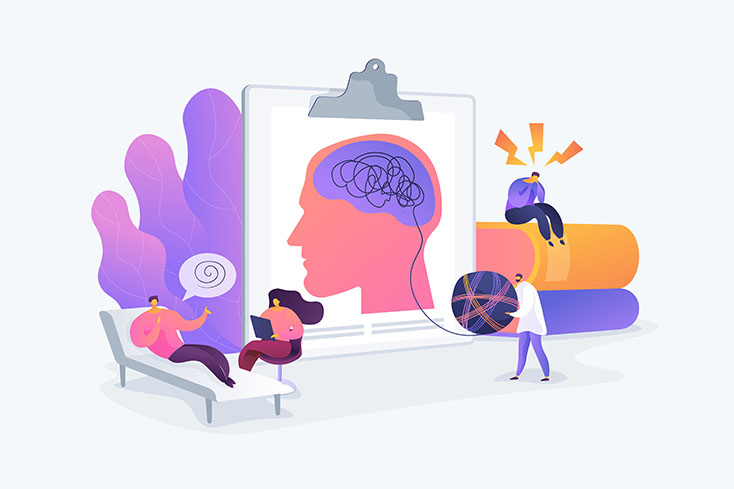
EMDR Therapy That Heals Trauma Gently
Process Difficult Memories Without Reliving the Pain
EMDR therapy helps you heal from trauma, PTSD, and painful memories using gentle eye movements. This proven approach allows your brain to process disturbing experiences naturally. You don’t have to talk about every detail of what happened. Our trained specialists provide safe, effective treatment as part of our comprehensive types of therapy options.
How EMDR Therapy Works
EMDR stands for Eye Movement Desensitization and Reprocessing. This therapy helps your brain process traumatic memories in a new way. During EMDR, you’ll follow your therapist’s finger with your eyes while thinking about a difficult memory. These eye movements help your brain reprocess the memory so it becomes less disturbing.
The therapy works because trauma can get “stuck” in your brain. When this happens, painful memories feel as fresh and scary as when they first occurred. EMDR helps your brain file these memories away properly. After treatment, you’ll still remember what happened, but it won’t feel as overwhelming or painful.
EMDR therapy is recognized by major mental health organizations worldwide. Research shows it’s highly effective for PTSD, trauma, anxiety, and depression. Many people experience significant relief in fewer sessions than traditional talk therapy alone.

What to Expect During EMDR Sessions
Your first EMDR session will focus on getting to know you and your history. Your therapist will explain how EMDR works and answer any questions you have. You’ll learn coping skills to help you feel safe during processing.
In later sessions, you’ll work on specific memories or experiences. Your therapist will guide you through the eye movements while you think about the memory. You might notice thoughts, feelings, or body sensations during this process. This is normal and shows your brain is working to heal.
Who Benefits from EMDR Therapy
EMDR therapy helps people who have experienced many different types of trauma. This includes childhood abuse, accidents, violence, natural disasters, and military combat. It also works well for people with anxiety, panic attacks, and phobias.
You might benefit from EMDR if you have flashbacks, nightmares, or intrusive thoughts about past events. It’s also helpful if you feel stuck reliving painful experiences or avoiding certain places, people, or activities because of past trauma.
EMDR works for both recent trauma and experiences from long ago. Many people find it helpful for childhood experiences that still affect them as adults. It’s effective for single traumatic events as well as ongoing trauma or abuse.

Why EMDR Clients Choose Us Again and Again
We offer specialized EMDR therapy delivered by trained, compassionate therapists. Our approach combines this proven trauma therapy with holistic care for complete healing. Learn more about our company and our trauma-informed treatment philosophy.
Certified EMDR Therapists
Trauma-Informed Environment
Proven Results
Holistic Integration
Personalized Care
What Our Clients Say
Our clients often share how EMDR therapy helped them reclaim their lives from trauma. They sleep better, feel less anxious, and no longer feel controlled by painful memories. Read more client reviews to see how EMDR has helped people just like you.
FAQs
What does EMDR stand for?
How is EMDR different from regular talk therapy?
Is EMDR therapy safe?
What trauma does EMDR help with?
How many EMDR sessions will I need?
Will EMDR make me forget what happened?
Can children do EMDR therapy?
Yes, EMDR works for children and teens. We also offer specialized play therapy for younger clients who might benefit from other approaches.
What should I expect to feel after an EMDR session?
Can I combine EMDR with other treatments?
Yes! We often combine EMDR with individual counseling, IASIS neurofeedback, or other holistic health services for better results.
How do I know if EMDR is right for me?
Your Trusted Texas Mental Health Partner
Get caring, results-driven care from a team that puts your well-being first. We proudly serve families and individuals across Texas with mental health services. Are you seeking trauma healing, PTSD treatment, or gentle therapy approaches? Our licensed therapists help clients in Cypress, Tomball, and Houston access the specialized care they deserve. Find therapy that meets you where you are.
Stay Informed with Our Blog
Mental health isn’t one-size-fits-all. Neither is the support you need. Our blog shares tips, tools, and resources on therapy. It covers trauma healing, EMDR insights, and mental wellness strategies. These help you grow beyond the session.

Social Media and Mental Health

7 Behaviors for Improving Mental Health




